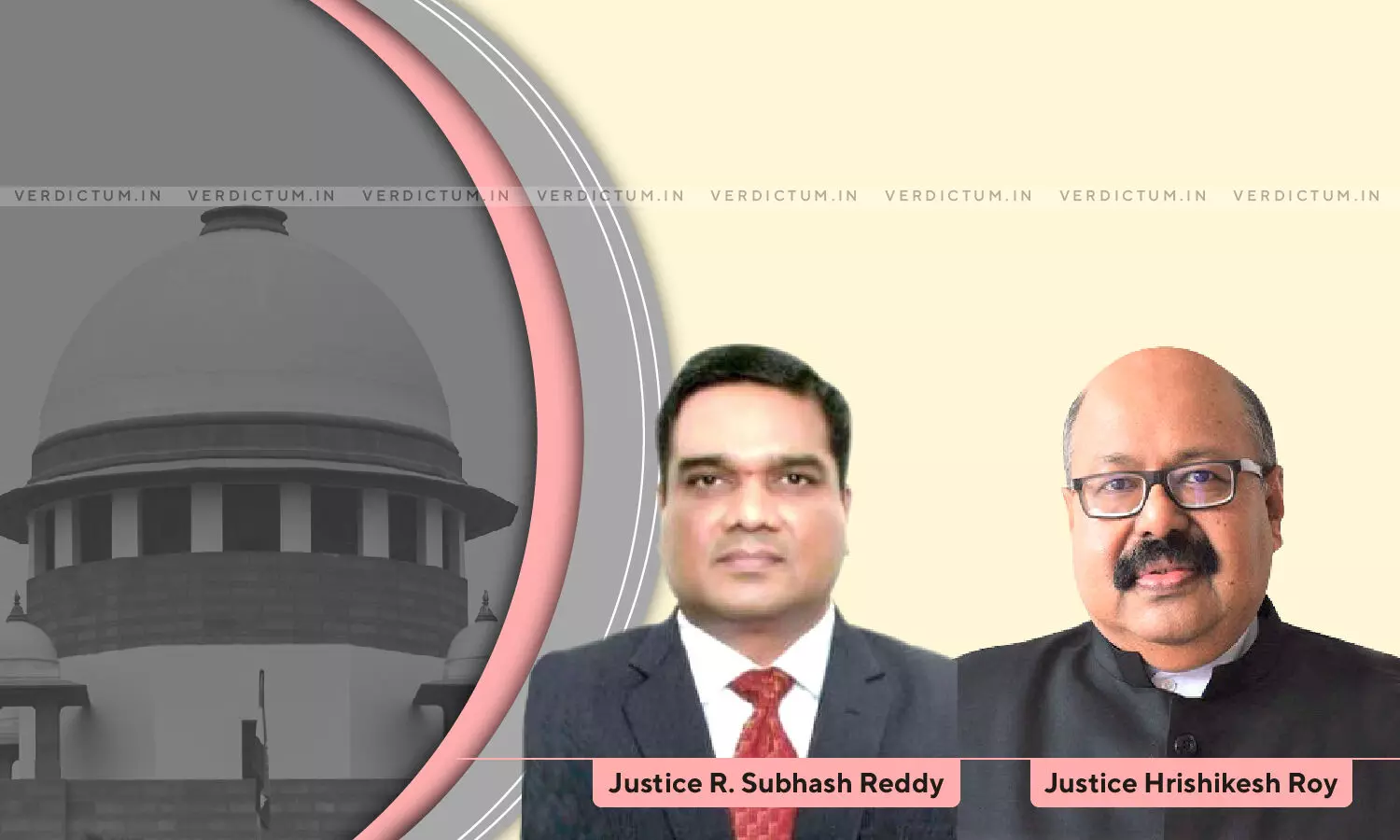
Civil Court Cannot Entertain Suit Structured On The Provisions Of Industrial Disputes Act: Supreme Court
 |
|A two-judge bench of Justice R. Subhash Reddy and Justice Hrishikesh Roy held that a Civil Court lacks the requisite jurisdiction to adjudicate upon matters related to the termination of employees under the Industrial Disputes Act (ID Act).
An appeal was preferred against the judgment of Himachal Pradesh High Court which had held that a Civil Court did not have any jurisdiction to entertain an Industrial Dispute case and set aside the decree. In this case, Plaintiff, a daily wage employee working under the Himachal Pradesh State Electricity Board, had challenged the order of his termination before the Civil Court. The Respondent, the Defendant in the Suit had raised a preliminary objection regarding maintainability. The Civil Court, after examining all the facts and contentions, concluded that Plaintiff had been terminated wrongfully as the statutory provisions under Section 25B and 25F of the Industrial Disputes Act were not complied with.
On a challenge by the Respondent, the first appellate Court upheld the Decree. When the Appellant sought to execute the Decree, the Respondent raised the plea of the Decree being a nullity. The executing Court rejected the plea, while the High Court accepted the same in revision.
The Appellant contended before the Supreme Court that even when relief is claimed based on the provisions of the Industrial Disputes Act, the jurisdiction of the Civil Court is not entirely barred.
The Respondent challenged these contentions by submitting that the jurisdiction of the Civil Court is ousted when relief is claimed under the Industrial Disputes Act. The Respondent further argued that when the Civil Court had no jurisdiction, the decree is nothing but a nullity and no relief on the basis of such void decree can be claimed by the Plaintiff. The Respondent contended that the plea of absence of jurisdiction can be raised even at the stage of execution.
After considering the contentions put forward by both the parties, the Supreme Court observed, "The above contentions of the parties indicate that the only issue to be considered here is whether the suit before the civil court at the instance of the terminated employee, was maintainable. The civil courts may have the limited jurisdiction in service matters, but jurisdiction may not be available to Court to adjudicate on orders passed by disciplinary authority. The authorities specified under the ID Act including the appropriate government and the industrial courts perform various functions and the ID Act provides for a wider definition of "termination of service", the condition precedent of termination of service. The consequence of infringing those, are also provided in the ID Act. When a litigant opts for common law remedy, he may choose either the civil court or the industrial forum."
The Court asserted, "In the present matter, the appellant has clearly founded his claim in the suit, on the provisions of the ID Act and the employer therefore is entitled to raise a jurisdictional objection to the proceedings before the civil court. The courts below including the executing court negated the jurisdictional objection. The High Court in Revision, however has overturned the lower court's order and declared that the decree in favour of the plaintiff is hit by the principle of coram non judice and therefore, the same is a nullity ."
The Supreme Court upheld the order passed by the High Court and observed that the Civil Court did not have the requisite jurisdiction to adjudicate upon matters related to the provisions of the Industrial Disputes Act.
The Court held that it is "of the considered opinion that the civil court lacks jurisdiction to entertain a suit structured on the provisions of the ID Act. The decree favouring the plaintiff is a legal nullity and the finding of the High Court to this extent is upheld".
Accordingly, the appeal was dismissed. However, considering the hardship to the terminated employee, the Court held that the sum paid to the Appellant pursuant to the decree should not be recovered.